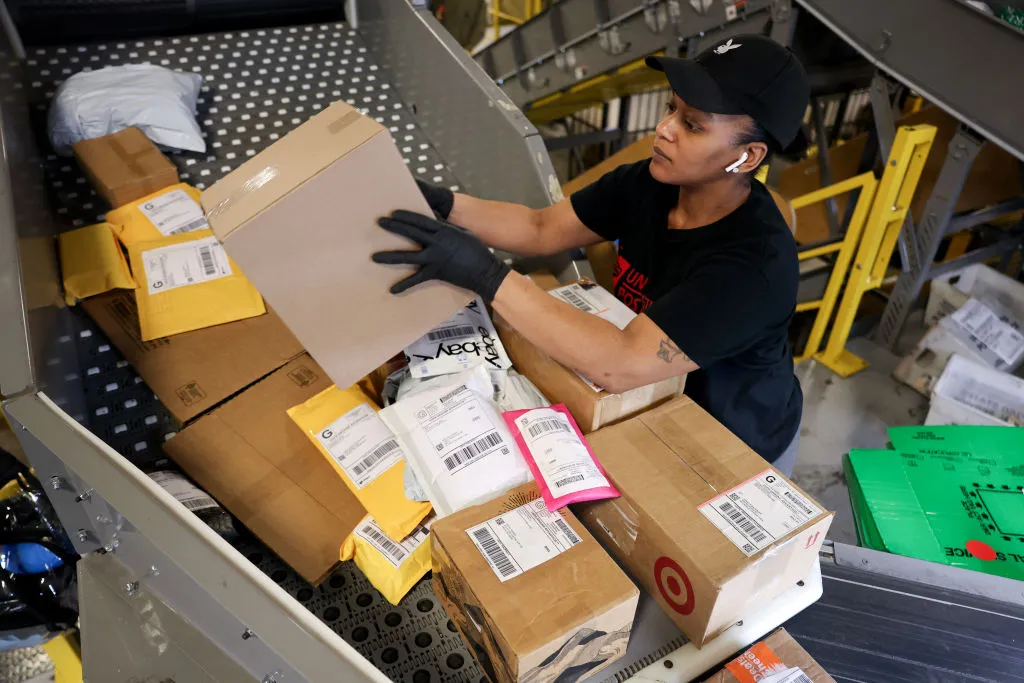 Track and Trace
Track and Trace
As President Donald Trump mulls big changes for the agency, experts said taking it private could put some of its current advantages at risk.
By: Max Garland • Published March 12, 2025
A fully privatized U.S. Postal Service would pursue more rate hikes, reduced service frequency and a network that looks more like FedEx and UPS, experts told Supply Chain Dive.
President Donald has floated the idea of taking the roughly 250-year-old institution private as the White House evaluates approaches to reduce the agency’s financial losses. Tesla CEO Elon Musk, a prominent voice in the Trump administration, said the Postal Service should be privatized during a Morgan Stanley conference, according to reports.
The possibility has stoked pushback from Postal Service employees and members of Congress, who fear such a move would jeopardize service in rural communities, drive up prices and put agency jobs at risk. Postmaster General Louis DeJoy said in a Feb. 25 video message to employees it’s up to the president and Congress to decide if change is required in its structure.
“To the degree possible postal leadership will be involved, so that we ensure the nation’s leaders are aware of how future proposed changes may impact our organization’s ability to serve the American people,” DeJoy said.
The state of the agency
The Postal Service is already pushing to become financially sustainable under DeJoy’s 10-year “Delivering for America” plan, implementing an array of network adjustments to trim operating costs while attracting more package shippers to boost revenues. It’s been a long road to get there, however.
The agency lost $9.5 billion during fiscal year 2024, 80% of which it blamed on factors outside of management control like the amortization of unfunded pension liabilities. DeJoy has pushed for administrative and legislative reform, such as pension funding changes, to ease the agency’s financial challenges.
As the Trump administration and lawmakers debate the agency’s future, they must determine if a fully private, profit-driven enterprise free of regulatory constraints would be beneficial for the country, experts said.
Despite its current issues, the Postal Service’s delivery network “is a critical part of the nation’s infrastructure that cannot be replicated by private actors,” according to a 2018 report from a task force established in Trump’s first term to evaluate agency reform.
“We have to really understand, what is the Post Office?” said Aaron Alpeter, founder of supply chain consultancy Izba. “Is it meant to compete with commercial interests that are out there, or is meant to provide a safety net for things that commercial interests are not interested in?”

A U.S. Postal Service mail clerk sorts packages on Dec. 17, 2024 in Opa-locka, Florida. The agency has been pushing to attract more package shippers to improve its financial performance.
Joe Raedle via Getty Images

 04/09/2025
04/09/2025
Apple Koregaon Park opens to customers this Thursday, September 4, in Pune

 04/09/2025
04/09/2025
NIO Inc. Reports Unaudited Second Quarter 2025 Financial Results

 04/09/2025
04/09/2025
Nestle CFO: complaints of "improper favoritism" triggered inquiry into CEO

 04/09/2025
04/09/2025
Why Career Site Applicants Are 3X More Likely to Be Hired — And How to Get More of Them

 04/09/2025
04/09/2025
What Are Interview Scorecards and How to Use Them

 04/09/2025
04/09/2025
TA Teams Are Looking to New Hiring Strategies to Address “doom loop” of Overreliance on AI

 04/09/2025
04/09/2025
The approval of the construction package transaction for the Main Contract Work of the C16 Apartment Project.

 04/09/2025
04/09/2025
The Approval of the construction transaction for package ST5 – Construction of piling foundation structure, superstructure, finishing works, MEPF systems for Towers at the Vam Co Dong Southgate New Urban Area project

 04/09/2025
04/09/2025
Replacement of an internal corporate officer due to resignation

 04/09/2025
04/09/2025
World’s largest sovereign wealth fund invests $543 million in Manhattan office building

 04/09/2025
04/09/2025











 VN
VN EN
EN
